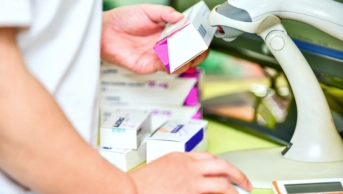
Shutterstock.com
Pharmacies in Great Britain should ensure that their systems are no longer connected to the UK Medicines Verification System (UKMVS) at the end of 2020, the UK FMD Working Group for Community Pharmacy has said.
It confirmed that the Falsified Medicines Directive (FMD) will no longer apply in Great Britain once the Brexit transition period ends on 31 December 2020.
In a statement published on 16 November 2020, the group said that from 31 December 2020, end users will be automatically disconnected from the system. But pharmacists should check that any integrated pharmacy systems with FMD functions “are no longer actively connecting to or seeking a response from the UKMVS after the end of 2020”. Standalone FMD systems, the group says, “can simply be turned off”.
The Medicines and Healthcare products Regulatory Agency (MHRA) had previously said that the FMD would no longer apply in the UK if there was a no-deal Brexit, but it had been unclear what would happen if the UK government agreed an exit deal with the European Union.
Under the European Union withdrawal agreement, pharmacies in Northern Ireland will remain part of the FMD even after the end of the Brexit transition period.
Gareth Jones, head of corporate affairs at the National Pharmacy Association, said that discussions will now have to take place to ensure that pharmacies in the three Great British nations “are not left out of pocket by the decisions that have led to the end of the requirement to scan”.
“The end of FMD in Great Britain provides an opportunity to consider how to deliver the patient safety benefits of an anti-counterfeiting system — but in a way that is more flexible and in line with the way that medicine supply works in the UK,” he said.
“There are different ways to prevent counterfeit medicines reaching patients — pharmacy-level scans at the point of supply is just one option.”
In October 2020, the Royal Pharmaceutical Society (RPS) wrote to health secretary Matt Hancock, asking for robust plans to be put in place “to help authenticate the legitimacy of medicines that move between the EU and the UK”.
“We are concerned that removal of these safeguards could leave the UK vulnerable to an influx of counterfeit medicines, impacting on patient care in the UK and across the EU,” the RPS said.
The Medicines and Medical Devices Bill, which aims to introduce delegated powers allowing existing regulatory frameworks to be updated following Brexit — includes broad proposals for a UK-only scheme to combat falsified medicines.
However, during a House of Lords debate on the bill on 2 September 2020, Lord Clement-Jones warned of “legislative creep”, saying that its proposed wording “considerably broadens the original data-collection provisions of the Falsified Medicines Directive”.


